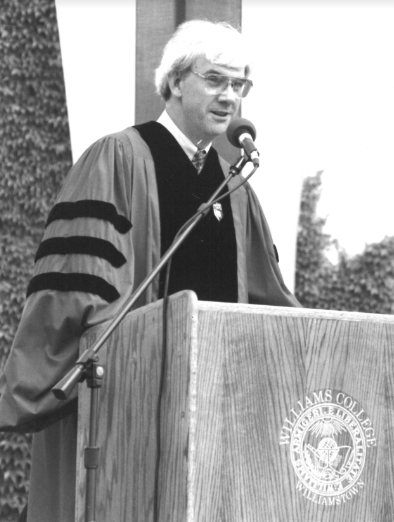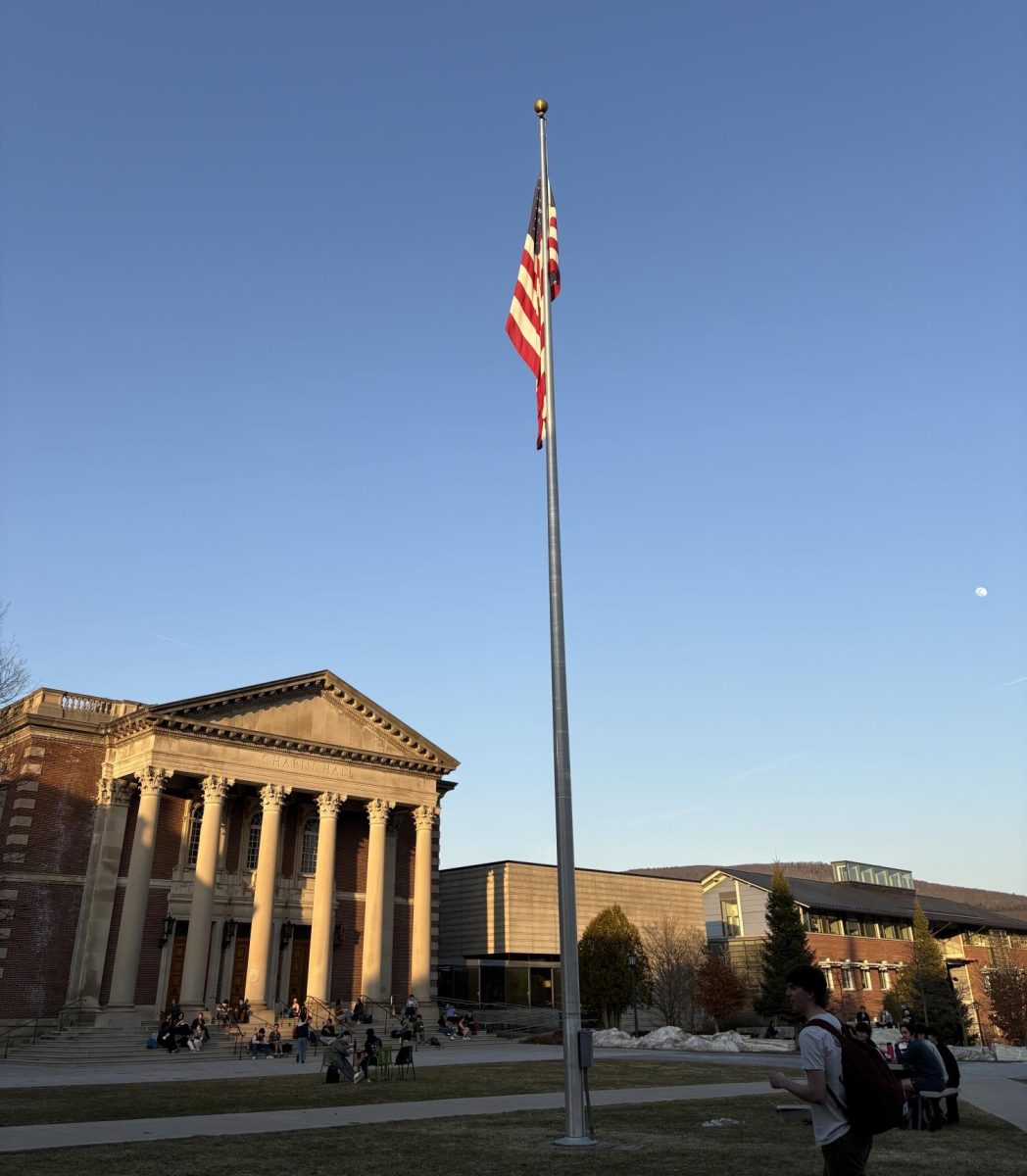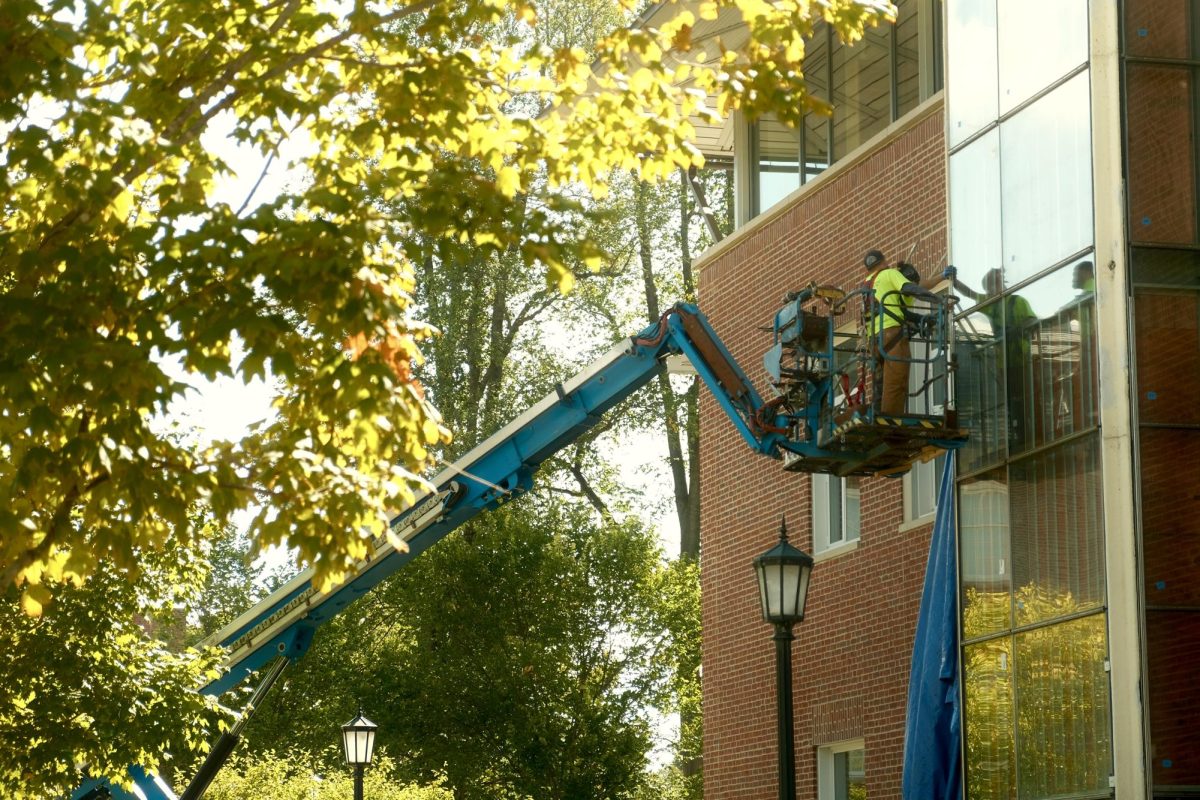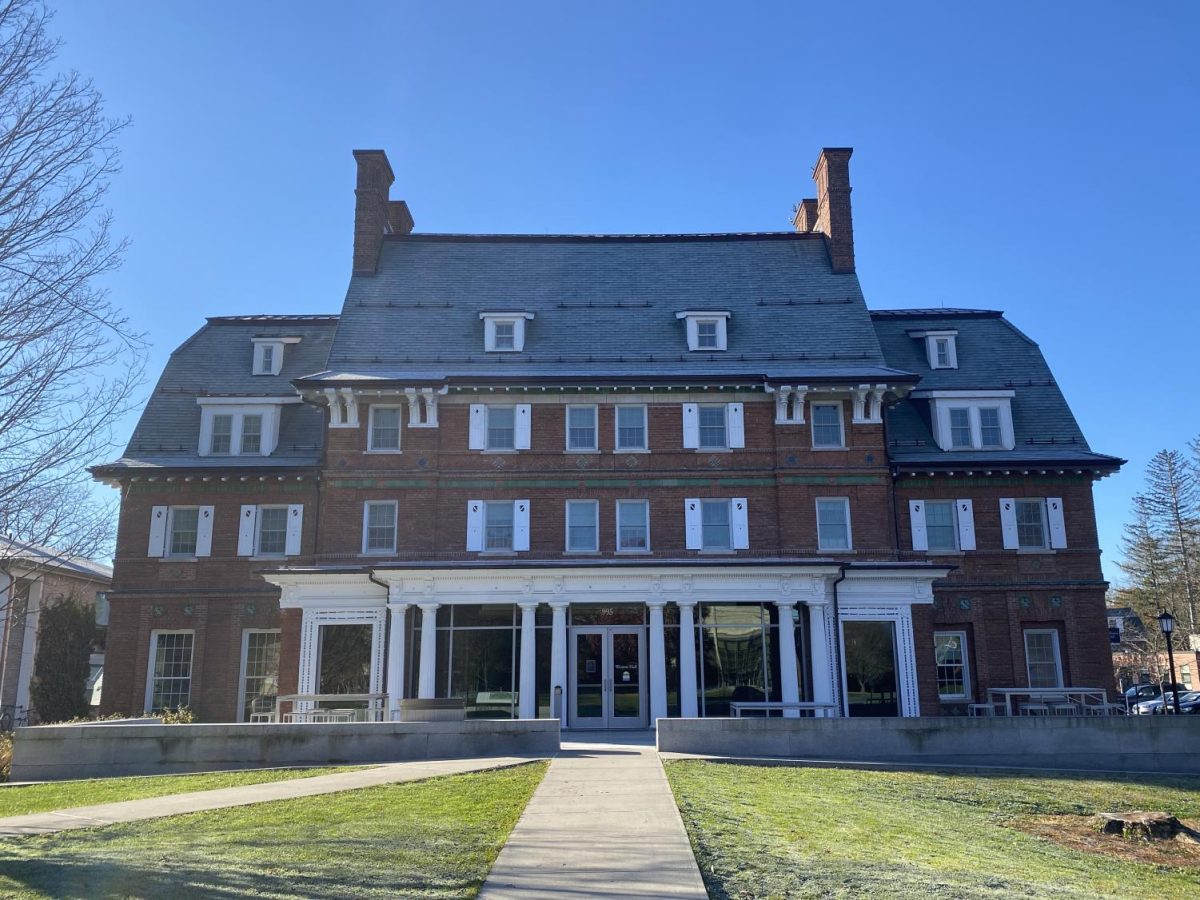Stephen Fix, Robert G. Scott ’68 Professor of English, died on April 23 at the age of 71. He taught at the College for over 40 years and was still a member of the faculty when he passed away, though he taught his last class in fall 2022. Fix specialized in 18th-century British literature and 20th-century American fiction. Colleagues, friends, and former students remember him as a beloved mentor, brilliant academic, and wickedly humorous conversant.
Born and raised in Boston, Fix graduated from Boston College in 1974 and went on to earn a doctorate in English at Cornell in 1979. He arrived at the College as a Professor of English that same year and later served as dean of the College from 1985 to 1992 and chair of the English department from 1992 to 1998.
Fix played a key role in instituting the tutorial course format at the College. In a 2008 Oral History Project interview with Charles Alberti ’50, Fix credited Dick Sabot, a former professor of economics at the College, for introducing the idea of a tutorial program. “From the initial impulse of Dick’s suggesting that we do something like Oxford tutorials at Williams, there arose the design of the tutorial program that actually endures pretty much unchanged here to this day, now 21 years later,” Fix said in 2008.
In the interview, Fix also praised the tutorial program for its emphasis on presentation skills. “My chief value that I try to advance as head of the tutorial program is to get … faculty to have students read the paper out loud,” he said.
“What [anyone at Williams] will tell you is that as wonderful as the training is, one of the things that you draw on probably more than any of those, is speaking ability, presentation, verbal communication,” he continued. “So I think this is an unusual opportunity to give students some practice and some criticism of their work.”
Fix’s student and mentee Tom Perkins ’87 first met Fix in 1982 as a junior in high school participating in a Telluride Association Summer Seminar, an educational program tailored for high school students. As a faculty sponsor and trustee for the association, Fix was involved in bringing the program to the College, Perkins told the Record.
“I will always remember him for the way he really listened to students and treated us as intellectual equals, even when we really were not — pushing us to think and work harder,” he said.
Perkins worked closely with Fix during Perkins’ senior year at the College, when they both served on the Committee on Educational Affairs. Fix and Perkins collaborated on the curricular design of the tutorial program and the College’s re-accreditation process that summer.
“It all seemed ‘normal’ at the time, but when I described it later to my peers at other undergraduate institutions, they were dumbfounded at the degree to which Williams students had input into major College initiatives,” Perkins wrote in an email to the Record. “Steve engaged so many of us. I think that most of my classmates have a memory and a positive experience even if they never took a class with him. He was everywhere.”
Dave Attisani ’87, another close friend of Fix’s, expressed fondness and gratitude for his diligent and dedicated instruction of critical writing. In an interview with the Record, Attisani recalled how Fix applied exceptional scrutiny and thought to the writing process, which “involved his meticulous attention to a succession of drafts … and concise but eminently thorough written and oral explanations.”
Attisani added that Fix selflessly offered his intellectual expertise and the story of his life journey to his students and mentees. “Steve was very willing to extend himself and show his own vulnerabilities to make us feel emboldened, empowered, … and normal,” he said.
During their time at the College, Attisani and Perkins both took the co-taught “Introduction to the Novel” class, which Fix and other faculty members had developed to embrace a range of culturally and historically stimulating English-language stories. Novelists studied included Jane Austen, Toni Morrison, Vladimir Nabokov, Charles Dickens, and Zadie Smith.
Fix took part in shaping many other courses in the English department, including a 100-level course called “Literary Speakers” on poems and short stories, a tutorial on elegies, and the 300-level seminars “Nabokov and Pynchon” and “Frost and Heaney.” Two other popular courses of his were “Samuel Johnson and the Literary Tradition” and a Gateway course on lyric poetry designed for prospective majors.
“Few colleges or universities offer even an occasional course on the eighteenth-century British writer Samuel Johnson; Steve Fix’s legendary course, which made the passions and dilemmas enacted in eighteenth-century literature and criticism vivid and compelling, was routinely packed,” Professor of English Anita Sokolsky wrote in an email to the Record.
When sharing past memories of Fix, Chair and Professor of English Gage McWeeny recalled his entertaining and witty humor, a constant and defining aspect of Fix’s personality. He recounted a recent time when he was sitting in on one of Fix’s lessons for “Introduction to the Novel.” Fix was lecturing on the novel Lolita by Vladimir Nabokov. Upon Fix’s detailed analysis of its controversial protagonist Humbert Humbert, Fix ended with a quick-witted pun. “The line was, to the best of my recollection: ‘But, perhaps Humbert Humbert is beyond all Fixes,’” McWeeny said in an interview with the Record.
“It was a moment of utmost seriousness that he had turned around with levity,” McWeeny said. “The students could see that he was trying to be eloquent, but dramatize it in a way.”
McWeeny also remembered Fix’s ability to connect with and listen to students with humility, thought, and care. “He had that ability to model [pedagogical values] for other people without being showy about it,” he said. “He was incredibly modest in all kinds of ways.”
Professor of English Stephen Tifft echoed such sentiments in an email to the Record. “To his friends and colleagues, he was unfailingly loyal, sensitive, and tirelessly helpful, and in his interactions showed an equal capacity to be deeply serious or funny and high-spirited, as occasion demanded,” he wrote. “There was virtually no one in the Williams community who did not admire and respect Stephen Fix.”
Fix is survived by his sister Mary Ann Skjold, his two nieces Christine Skjold and Suzanne Skjold, and Suzanne’s husband Robert Nichols. His funeral was held last Saturday at Sacred Heart Church in North Quincy, Mass. It was attended by his relatives along with many faculty and friends from the College.














